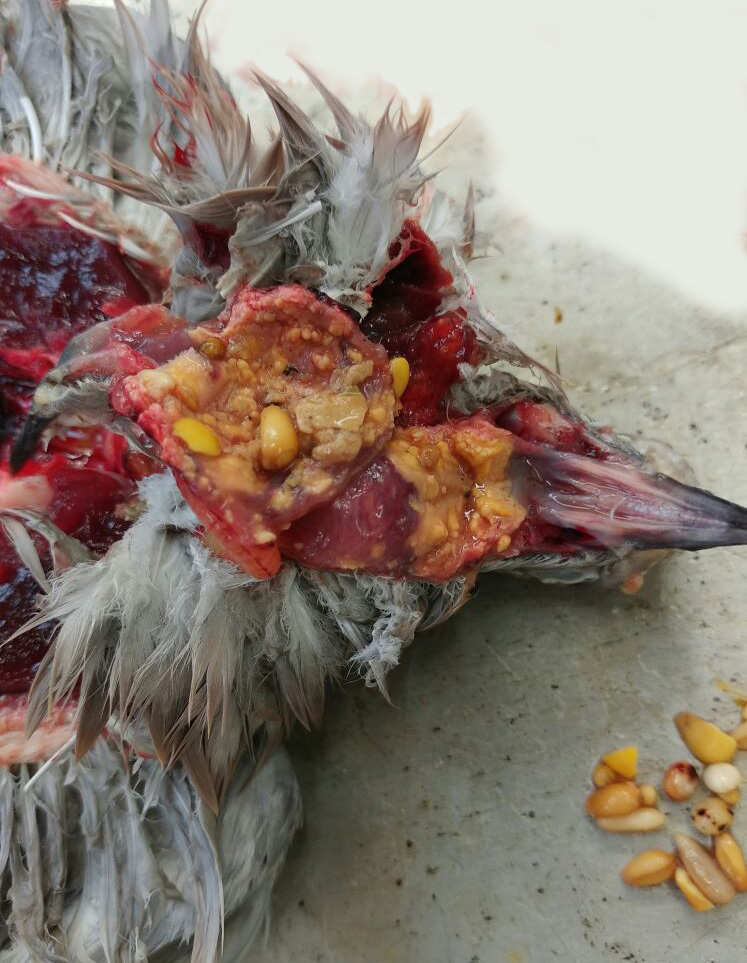Eurasian collared doves dying from trichomonosis
As was seen in 2017, we are currently receiving reports of many Eurasian collared doves (Streptopelia decaocto) dying within one week. The birds are described as looking sick, hunched and emaciated, and not flying away. Two birds showing such signs recently underwent post-mortem exam at the DWHC. The cause of death in these cases, just as last year, was found to be trichomonosis and it is expected that this disease will be responsible for more deaths in pigeons and doves in the coming months.

A yellow pasty material mixed with maize and other food remains
Trichomonosis
Trichominiasis is caused by infection with the parasite Trichomonas gallinae and occurs predominantly in doves and pigeons, green finches and birds of prey that have eaten infected birds. This disease is not dangerous for humans, cats or dogs.
The parasite causes inflammation of the oral cavity, throat, crop and oesophagus. This causes difficulty in eating and drinking and leads to starvation and occasionally choking. The disease can progress rapidly. It can be recognised by the presence of yellow material in the mouth when the beak is opened. However, trichomonosis is not the only condition that can cause this and other diseases such as avian pox virus must be ruled out by further testing.
Preventative measures
If you put food out for birds in your garden then follow this advice to minimise the risk of creating a source of infection.
- Clean feeders and bird tables daily and disinfect them regularly with a product such as dilute household bleach (5% Sodium hypochlorite); rinse them thoroughly and allow to dry before putting out new food.
- Reposition feeders regularly to avoid dropped food and feces accumulating in one spot.
- Rinse out bird baths daily and allow to dry before re-filling.
- During an outbreak feeding should be reduced stopped during 2-4 weeks.
Personal hygiene
Although trichomonosis is not dangerous for humans, birds can carry and spread other germs that do cause disease in humans (zoonoses). For this reason it is important that disposable gloves are worn when handling dead birds and when cleaning feeding areas and that you always wash your hands thoroughly afterwards, especially before eating or drinking.
Dead birds
If you find a dead bird you can report it via the form on the DWHC or Sovon websites. This is the only way that we can monitor bird deaths throughout the year.



